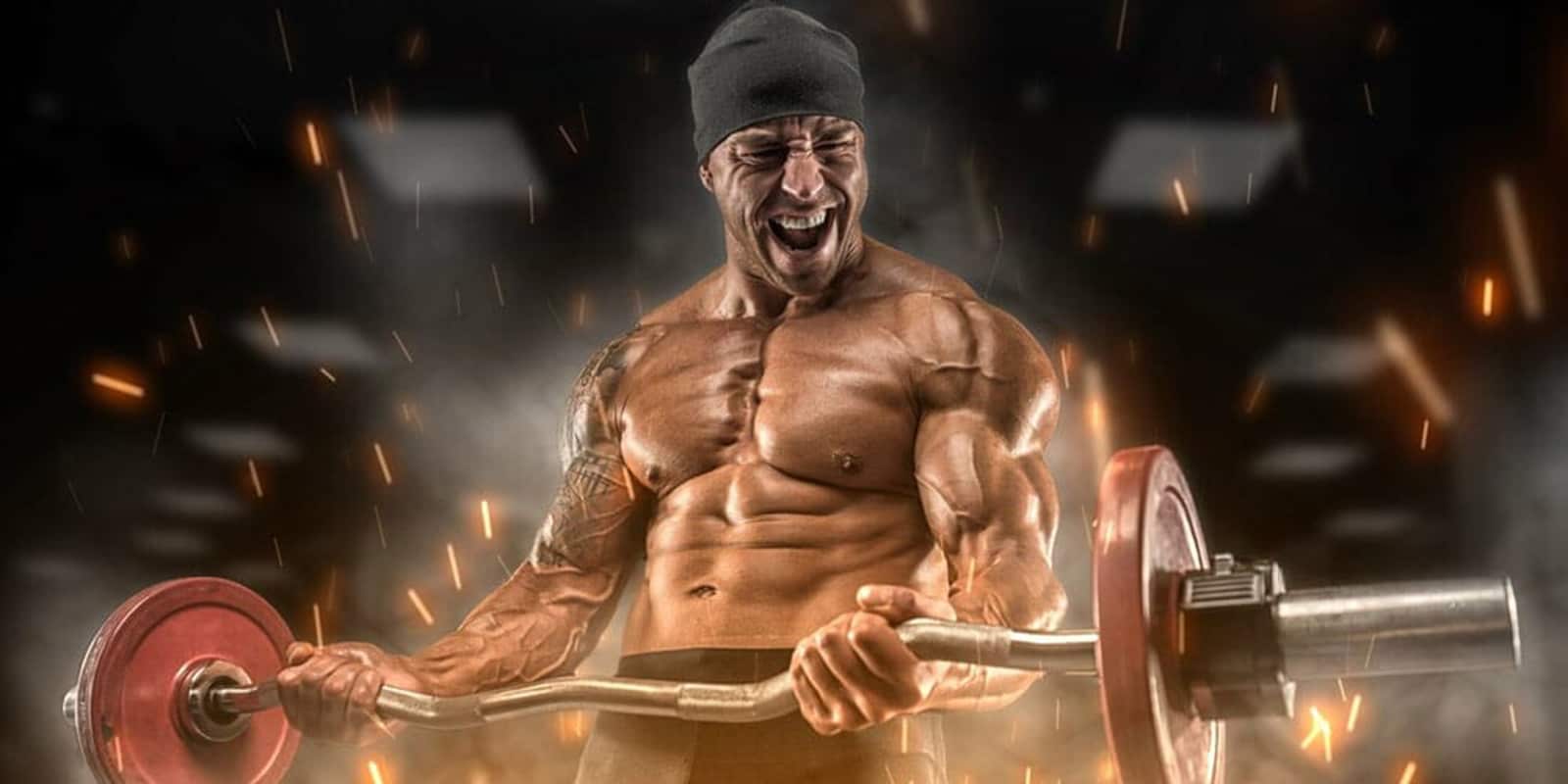Human growth hormone can heal injuries and make you look much younger and leaner. But there are side effects — plus it’s illegal without a prescription. So is taking it worth the risk? MF investigates.
“You’re looking at $300 per month for a low dose,” the message on my phone reads. “It’s produced in the UK and tends to be a bit more expensive than the Chinese or Eastern European stuff, which isn’t as good.”I couldn’t believe it was that easy. All it took was a few phone calls and a couple of texts before I was being offered human growth hormone on the black market. I’ve had more complicated trips to Woolworths.
Human growth hormone (hGH) occurs naturally in the body and contributes to the repair and regeneration of bone, muscle, tendons and ligaments. It’s occasionally prescribed to help treat growth disorders in children and hormone deficiency in adults.
Oh, and its continuous illegal use by athletes to boost recovery and performance has led the World Anti-Doping Agency (WADA) to double the possible length of ban for an athlete who is found guilty of taking it. That’s the part we’re interested in. What exactly does it do? And why are athletes tempted to take it?
HGH: the Real Deal
When I went looking for hGH, I’d imagined I’d be sold some knock-off chemical cooked up in the back of a van. I certainly thought the first thing a newbie like me would be offered would be in the form of pills or cream (which are far less effective than hGH injections). So when I was offered Norditropin SimpleXx, a medicine used in Australia, I was a little surprised. It seems people buying this stuff know what they want. Still, I’m pretty sure I don’t have a hormone deficiency and I’m definitely not a child with a growth disorder, so why would I take it in the first place?
“I recommend anyone over the age of 30 who is actively training hard in any sport to give it a go,” says Jack, a 39-year-old personal trainer and Brazilian jiu jitsu instructor who has been using growth hormone without a prescription since January 2013. He’s open about his use of hGH to people around him and doesn’t fit the steroid-monkey stereotype people often imagine when they hear of someone using needles. “I use a relatively low dose, between two and three [International Units, each equivalent to around 0.33mg] a day. Some people don’t get on with it or don’t feel good on it but I’m very, very pro-growth hormone.”
Jack started taking human growth hormone after a series of knee injuries from a career in mixed martial arts. “I had three tears to my medial ligament. I tore my posterior cruciate ligament and the meniscus in both my knees,”
he says. “I ended up with a knee that I couldn’t push over my toes. It went sideways and all kinds of stuff.”
KNEE BOTHER
Jack was referred to an orthopaedic surgeon but never scheduled a surgery. “I couldn’t afford the time out of training because for me training is work,” he says. “So I started looking into growth hormone and I found that as well as the immediate effects, like fat loss, when used over a long period of time it would actually cause the body to start re-growing cartilage where it had been damaged.” When compared with the stress and long recovery times of surgery it’s easy to see the appeal of hGH, although Jack’s outlook initially focused on something a bit more simple. “I thought that if nothing else, at least my abs might look better,” he admits.
Six months later Jack’s knees had not only improved, they were better than they’d ever been before his injuries. He was sold.
GLAND’S END
But can everyone who’s prepared to inject this illegal substance expect Jack’s results? Dr Alan Sweeney, a specialist in sport and exercise medicine, says, “It’s one of eight hormones to come from a pea-sized gland at the base of the brain, called the pituitary gland. Of all eight, hGH is arguably the least well understood in terms of what it does to our physiology.”
However, indications of its purpose and effects have been shown by research. “It seems to interact with the liver, telling it to produce another hormone called insulin-like growth factor 1 or IGF-1, which is believed to be responsible for all the proposed effects that occur,” says Sweeney. “These are improved recovery time for repairing muscles, tendons and ligaments, which in theory allows an athlete to train more frequently and with a greater intensity without incurring an overuse injury.”
But the scientific evidence supporting this is limited. “No credible studies have been able to show any improvement in muscle mass or strength when hGH is administered alongside a variety of different training protocols in middle-aged and elderly men,” says Sweeney.
The sports doping body WADA isn’t taking any chances. It lists hGH as a prohibited substance in and out of competition. “If an athlete starts to use synthetic forms [of hGH] on top of normal production then you could have increases in muscle size,” says Nick Wojek, a head of science and medicine at WADA. “Also, hGH increases collagen production, which reduces the chances of getting an injury and will help repair muscles a lot quicker.”
Even though credible studies are thin on the ground there is still a prevailing idea that taking hGH is good for physique. So what’s fuelling this? “There is no doubt that hGH increases the rate of lipolysis, ie, fat breakdown,” says Sweeney. “Because there’s very limited evidence for hGH’s role in increasing muscle mass, it is likely that the “improved physique” that some users report is purely loss of subcutaneous fat.”
Now that his knees are less of an issue, it’s this fat loss and faster recovery that’s kept Jack using hGH. “I train and teach jiu jitsu six days a week. Then I spend eight hours a week working out with one particular client who pays me to train with him,” he says. “It allows me to carry on with the volume of exercise that I do at my age.”
Jack laughs when the idea of looking better is brought up, but admits “there’s also a bit of vanity. It does help keep the body fat down which means that I can be a bit looser with my diet. It also has wonderful anti-ageing properties. People who haven’t seen me for a little while tell me I look younger than the last time they saw me.” While looking trim in the mirror is one thing, Wojek says that there is a performance benefit to hGH’s undoubted fat-loss effects. “In sport it is key that athletes are not carrying much weight,
so they can move better,” he says.
CRASH AND BURN
Jack’s experience with hGH seems to have been entirely positive — but that’s not to say there aren’t risks. Sweeney says that the flipside to the increased rate of fat breakdown is an earlier onset of lactate threshold during high-intensity activity, meaning you’ll burn out faster when training. “It’s ironic because many people who tend to use hGH are those who train at a high intensity,” says Sweeney.
It’s an effect that increases the more frequently you train as well. With your body using fat as energy in place of glucose, lactate threshold will occur even sooner next time you train at high intensity.
However, this isn’t the main medical concern. “A high rate of lipolysis is the recognised cause of sudden cardiac death owing to abnormally high levels of free fatty acids in the blood,” Sweeney says.
The other risk is that chronic exposure to hGH in an adult can cause the symptoms of a medical condition known as acromegaly. “This condition usually happens when a tumour grows on the pituitary, causing it to secrete loads of hGH,” Sweeney explains. “But it can also occur from injecting it for a long time at high doses.”
The effects of acromegaly? Whereas a child will grow taller when exposed to high levels of hGH, an adult will not, because the growth plates within their bones have already fused. Instead, the bones of an adult will become thicker and heavier. The jaw, nose, ears, forehead, hands and feet will all grow out of proportion. Great for Bond villains and professional wrestlers, not so much for attracting the opposite sex.
As well as the physical changes caused by acromegaly, Sweeney says, “People often die younger than they should because the heart fails while trying to pump extremely hard to provide blood
to all the new tissue. Or they die from complications of type 2 diabetes — the body thinks that the high levels of IGF-1 coming from the liver are insulin, and so the insulin receptors stop working and blood sugar levels shoot up. Anybody with a prolonged exposure to high hGH levels will be at risk of developing these same complications.”
PIN DROP
Jack shrugs off the risks, saying careful users won’t see negative side effects. “Most of those side effects are symptoms of what I would call abuse rather than use — quantities that a professional bodybuilder would use,” Jack says. “It’s like anything — you can enjoy a drink but that doesn’t make you an alcoholic. It isn’t going to ruin your life.”
The only side effect Jack says he has noticed is a tingling on the back of his hands. While he admits he doesn’t know the specifics behind the pins and needles he says that, ‘in a way it’s kind of reassuring because it reminds you that the product you’re using is actually real’.
To underline how unconcerned he is about the risks, Jack mentions that his wife also uses growth hormone. “She’s a beauty therapist and she’s very into fitness,” he says before adding with a laugh, “the major attraction for her is the anti-ageing.”
Regardless of the effects, positive or negative, if you use it while competing you’re putting yourself in serious jeopardy. “It isn’t just testing positive for a prohibited substance that’ll get you banned — there are eight anti-doping
rule violations,” Wojek says. “So if an athlete was found in possession, using
or trafficking, they would also get a ban.”
STRETCH BANNED
Tests are also getting more sophisticated. In 2012 two Russian Paralympic powerlifters, Nikolay Marfin and Vadim Rakitin, both admitted to using hGH after a new test identified it in their blood. Rather than looking for hGH itself, which passes out of your system very quickly, newer tests look at the unnatural increase in two markers, IGF-1 and another substance called P3NP, which is produced when bone or collagen is formed. Both lifters received two-year suspensions.
Several cyclists and baseball players have been banned for use of HGH, but abuse occurs in a wide variety of sports. “The tennis player Wayne Odesnik was caught at customs in possession of hGH,” says Wojek. “There was also a cross-country skier, Andrus Veerpalu, who was caught.”
While the punishment would normally be a two-year suspension, the new WADA code effective in 2015 will include harsher sanctions, according to Wojek, with bans stretching for up to four years.Beyond the physical effects, Wojek says there are also moral issues about taking any drug. “It’s against the spirit of sport regardless of the level you are competing at.”
If you’re on the fence, perhaps considering the legal aspects will help. Human growth hormone is illegal without a prescription in Australia. Wojek points out that UK Anti-Doping has data-sharing agreements with the police as well as border officials. “We share data where there is information potentially linked to buying, trafficking or supplying hGH,” he says. So even if you’re not competing just yet, buying it now may come back to bite you later.
Jack, perhaps unsurprisingly, has a different take on this. “I didn’t touch anything at all while competing as a professional, but I wouldn’t feel bad competing on it,” he says. “Growth hormone isn’t going to make you bigger, stronger, faster or anything like that — basically, growth hormone on its own doesn’t make you grow. It will get you lean and help you with injury repair.”
GROWTH REPORT
Depending on who you ask, hGH varies from a risky chemical with effects we don’t fully understand to something that could sit in your bathroom cabinet next to your hair wax and sun cream. Jack’s experiences with it are doubtless as positive as he says but without credible scientific tests it’s hard to be sure about all the benefits or pitfalls of taking hGH. But it’s important to remember that buying and selling hGH is against the law in Australia, which means you’d be taking a big risk for something that’s not 100% proven to work.
And if you’re wondering if I bought the hGH that was offered to me, I didn’t. Partly because I didn’t want to break the law, partly because needles make me feel funny, but mainly because at $300 a month, frankly I’m happy to get lean the old-fashioned way. ■
Related:Androstenedione: Does it Work?




